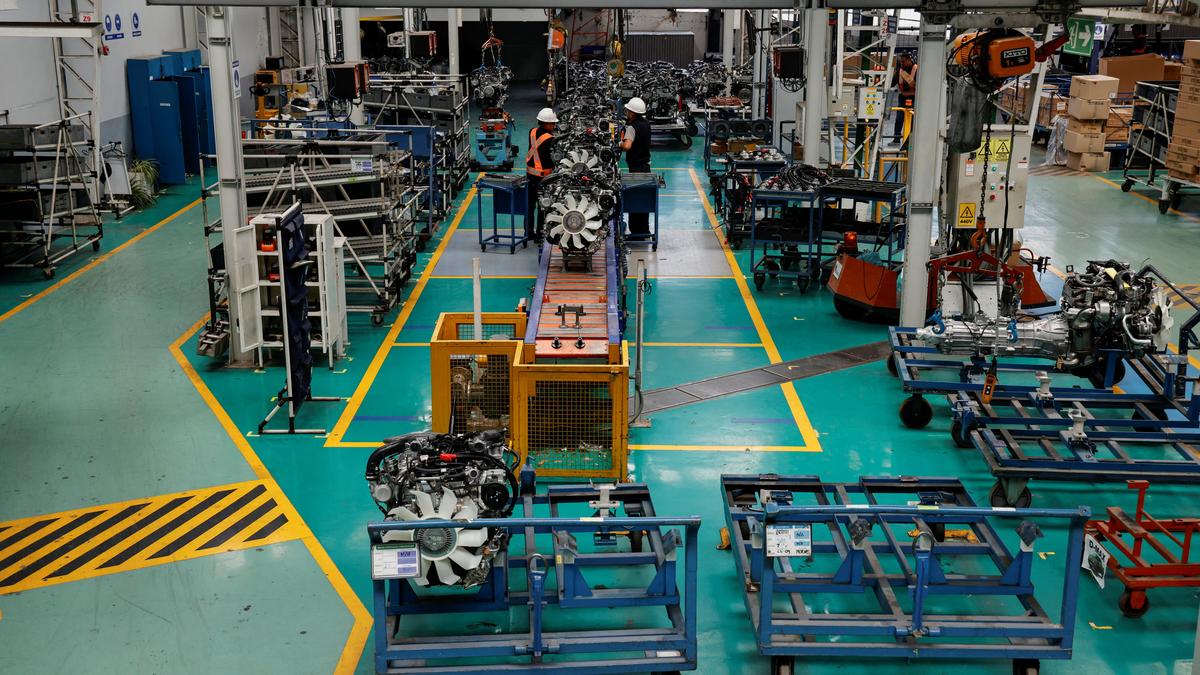The tech sector experienced a decline in market value during August, driven by a confluence of factors. Concerns over rising AI infrastructure costs, coupled with escalating recession risks, weighed heavily on investor sentiment. The slowdown in digital advertising revenue and heightened competition posed significant challenges for leading tech firms.
AI Infrastructure Costs and Recession Fears
Rising AI infrastructure costs emerged as a key concern for investors, impacting the valuations of tech giants. The development and deployment of AI models require significant computing power, data storage, and specialized hardware, driving up operational expenses. Concerns about escalating costs, particularly amid an economic downturn, raised worries about profit margins and future earnings. Furthermore, fears of a potential recession amplified the risks associated with tech investments. As economic uncertainty increases, investors tend to favor more conservative and less volatile sectors. This preference contributed to the decline in tech stock values, particularly those seen as particularly vulnerable to a market correction.
Google’s Struggles
Alphabet Inc., parent company of Google, saw its market value decline by 4.7% in August. The decline was attributed to multiple factors, including a slowdown in YouTube’s advertising sales, which raised concerns about the company’s earnings prospects. Furthermore, a U.S. judge’s ruling against Google for violating antitrust laws and the emergence of new competition from OpenAI, developing an AI-based search engine prototype, further added to the company’s woes.
Competition From OpenAI
OpenAI’s development of an AI-based search engine prototype represents a direct challenge to Google’s core business. OpenAI’s advanced language models have demonstrated impressive capabilities, threatening to disrupt Google’s dominant position in the search market. The potential for a significant shift in market share, coupled with the uncertainty surrounding OpenAI’s technology’s future success, heightened investor concerns about Google’s future prospects.
Amazon’s Slowing Sales
Amazon.com Inc., the e-commerce giant, also experienced a market value decline of 4.5% in August. The slowdown was attributed to slowing online sales, potentially reflecting an overall economic slowdown. Consumers may be tightening their belts in the face of economic uncertainty, leading to a decrease in discretionary spending on online purchases.
Tesla’s Tariff Concerns
Tesla, the world’s most valuable automaker, saw its market capitalization decline by 7.7% in August. The decline stemmed from a combination of factors, including weaker-than-expected second-quarter earnings and concerns over potential profit impacts resulting from a new 100% tariff imposed by Canada on Chinese-made electric vehicles.
Canadian Tariffs
Canada’s decision to impose a 100% tariff on Chinese-made electric vehicles, coupled with Tesla’s practice of exporting Shanghai-made EV’s to Canada, raised concerns about potential profit margins. If Tesla were to relocate production from its higher-cost U.S. facilities to meet the Canadian tariff requirements, its profitability could be impacted, leading to investor unease.
Nvidia’s Mixed Performance
Nvidia, a leading semiconductor company, witnessed a decline in its market value in late August. The decline followed the company’s release of third-quarter earnings guidance that fell short of analysts’ expectations.
Third Quarter Earnings Guidance
Nvidia’s lower-than-expected third-quarter gross margin projections and revenue results that merely met expectations disappointed investors, who had anticipated stronger performance. The market was expecting a more robust growth trajectory for Nvidia, particularly in the AI chip market, which it dominates with over 80% market share.
Positive Outliers
Despite the overall negative trends, some tech firms bucked the market downtrend in August.
Eli Lilly’s Success Story
Eli Lilly, a leading drugmaker, experienced a significant surge in its market value, rising nearly 20% during August. The company’s strong performance was driven by robust sales, including the launch of a weight-loss drug with notable success in reducing the risk of type 2 diabetes among overweight adults. The drug’s positive market reception, coupled with Eli Lilly’s solid overall performance, generated substantial investor confidence and a strong surge in the company’s market value.
Berkshire Hathaway’s Resilience
Berkshire Hathaway, the conglomerate founded by Warren Buffett, crossed the $1 trillion market value threshold for the first time in August. This milestone reflected investor confidence in Berkshire Hathaway’s resilience as a diversified conglomerate with a broad portfolio of investments across various industries. The company is often seen as a proxy for the U.S. economy, with its success tied to the overall health of the American market. Berkshire Hathaway’s robust market performance amidst challenging economic conditions solidified investor confidence in the company and its long-term growth potential.
Meta’s Rebound
Meta, the parent company of Facebook, Instagram, and WhatsApp, saw its market value climb nearly 10% in August after exceeding market expectations for its second-quarter revenues. Furthermore, the company projected strong revenue growth for the July-September quarter, indicating that continued strong digital ad spending on its platforms could help offset the costs of its AI investments.
Takeaways
- The tech sector experienced a decline in market value during August, fueled by concerns over rising AI infrastructure costs and escalating recession risks.
- Google faced challenges from a slowdown in YouTube advertising sales, antitrust concerns, and the emergence of a new competitor in OpenAI, which is developing an AI-based search engine.
- Amazon’s market value decreased due to slowing online sales, potentially indicating an overall economic slowdown.
- Tesla experienced a decline in market value attributed to weaker-than-expected Q2 earnings and concerns over potential profit impacts arising from Canadian tariffs on Chinese-made electric vehicles.
- Nvidia’s mixed performance, with lower-than-expected third-quarter gross margin projections and revenue results that just met expectations, disappointed investors.
- Eli Lilly’s market value surged significantly due to strong sales, including the successful launch of a weight-loss drug.
- Berkshire Hathaway crossed the $1 trillion market value threshold, indicating investor confidence in the company’s resilience and long-term growth potential.
- Meta’s market value climbed as it beat market expectations for second-quarter revenues and forecast strong growth for the July-September quarter, indicating the potential for strong digital ad spending to offset AI investment costs.




